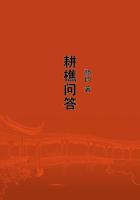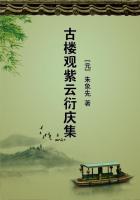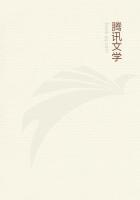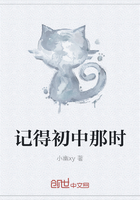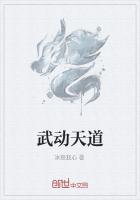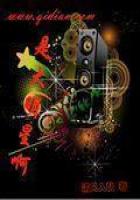On every side lay cultivated fields showing no sign of war and war's ravages. From the chimneys of the farmhouses thin ascensions of blue smoke signalled preparations for a day's peaceful toil. Hav-ing stilled its immemorial allocution to the moon, the watch-dog was assisting a negro who, prefixing a team of mules to the plough, was flatting and sharp-ing contentedly at his task. The hero of this tale stared stupidly at the pastoral picture as if he had never seen such a thing in all his life; then he put his hand to his head, passed it through his hair and, withdrawing it, attentively considered the palm--a singular thing to do. Apparently reassured by the act, he walked confidently toward the road.
2: When You have Lost Your Life Consult a Physician Dr. Stilling Malson, of Murfreesboro, having vis-ited a patient six or seven miles away, on the Nash-ville road, had remained with him all night. At day-break he set out for home on horseback, as was the custom of doctors of the time and region. He had passed into the neighbourhood of Stone's River bat-tlefield when a man approached him from the road-side and saluted in the military fashion, with a movement of the right hand to the hat-brim. But the hat was not a military hat, the man was not in uni-form and had not a martial bearing. The doctor nodded civilly, half thinking that the stranger's un-common greeting was perhaps in deference to the historic surroundings. As the stranger evidently de-sired speech with him he courteously reined in his horse and waited.
'Sir,' said the stranger, 'although a civilian, you are perhaps an enemy.'
'I am a physician,' was the non-committal reply.
'Thank you,' said the other. 'I am a lieutenant, of the staff of General Hazen.' He paused a moment and looked sharply at the person whom he was addressing, then added, 'Of the Federal army.'
The physician merely nodded.
'Kindly tell me,' continued the other, 'what has happened here. Where are the armies? Which has won the battle?'
The physician regarded his questioner curiously with half-shut eyes. After a professional scru-tiny, prolonged to the limit of politeness, 'Pardon me,' he said; 'one asking information should be willing to impart it. Are you wounded?' he added, smiling.
'Not seriously--it seems.'
The man removed the unmilitary hat, put his hand to his head, passed it through his hair and, withdrawing it, attentively considered the palm.
'I was struck by a bullet and have been uncon-scious. It must have been a light, glancing blow: Ifind no blood and feel no pain. I will not trouble you for treatment, but will you kindly direct me to my command--to any part of the Federal army--if you know?'
Again the doctor did not immediately reply: he was recalling much that is recorded in the books of his profession--something about lost identity and the effect of familiar scenes in restoring it. At length he looked the man in the face, smiled, and said:
'Lieutenant, you are not wearing the uniform of your rank and service.'
At this the man glanced down at his civilian attire, lifted his eyes, and said with hesitation:
'That is true. I--I don't quite understand.'
Still regarding him sharply but not unsympatheti-cally, the man of science bluntly inquired:
'How old are you?'
'Twenty-three--if that has anything to do with it.'
'You don't look it; I should hardly have guessed you to be just that.'
The man was growing impatient. 'We need not discuss that,' he said: 'I want to know about the army. Not two hours ago I saw a column of troops moving northward on this road. You must have met them. Be good enough to tell me the colour of their clothing, which I was unable to make out, and I'll trouble you no more.'
'You are quite sure that you saw them?'
'Sure? My God, sir, I could have counted them!'
'Why, really,' said the physician, with an amusing consciousness of his own resemblance to the loqua-cious barber of the Arabian Nights, 'this is very in-teresting. I met no troops.'
The man looked at him coldly, as if he had himself observed the likeness to the barber. 'It is plain,' he said, 'that you do not care to assist me. Sir, you may go to the devil!'
He turned and strode away, very much at ran-dom, across the dewy fields, his half-penitent tor-mentor quietly watching him from his point of van-tage in the saddle till he disappeared beyond an array of trees.
3: The Danger of Looking into a Pool of Water After leaving the road the man slackened his pace, and now went forward, rather deviously, with a dis-tinct feeling of fatigue. He could not account for this, though truly the interminable loquacity of that country doctor offered itself in explanation. Seating himself upon a rock, he laid one hand upon his knee, back upward, and casually looked at it. It was lean and withered. He lifted both hands to his face.
It was seamed and furrowed; he could trace the lines with the tips of his fingers. How strange!--a mere bullet-stroke and a brief unconsciousness should not make one a physical wreck.
'I must have been a long time in hospital,' he said aloud. 'Why, what a fool I am! The battle was in December, and it is now summer!' He laughed.
'No wonder that fellow thought me an escaped luna-tic. He was wrong: I am only an escaped patient.'
At a little distance a small plot of ground enclosed by a stone wall caught his attention. With no very definite intent he rose and went to it. In the centre was a square, solid monument of hewn stone. It was brown with age, weather-worn at the angles, spotted with moss and lichen. Between the massive blocks were strips of grass the leverage of whose roots had pushed them apart. In answer to the challenge of this ambitious structure Time had laid his destroy-ing hand upon it, and it would soon be 'one with Nineveh and Tyre.' In an inscription on one side his eye caught a familiar name. Shaking with ex-citement, he craned his body across the wall and read:

